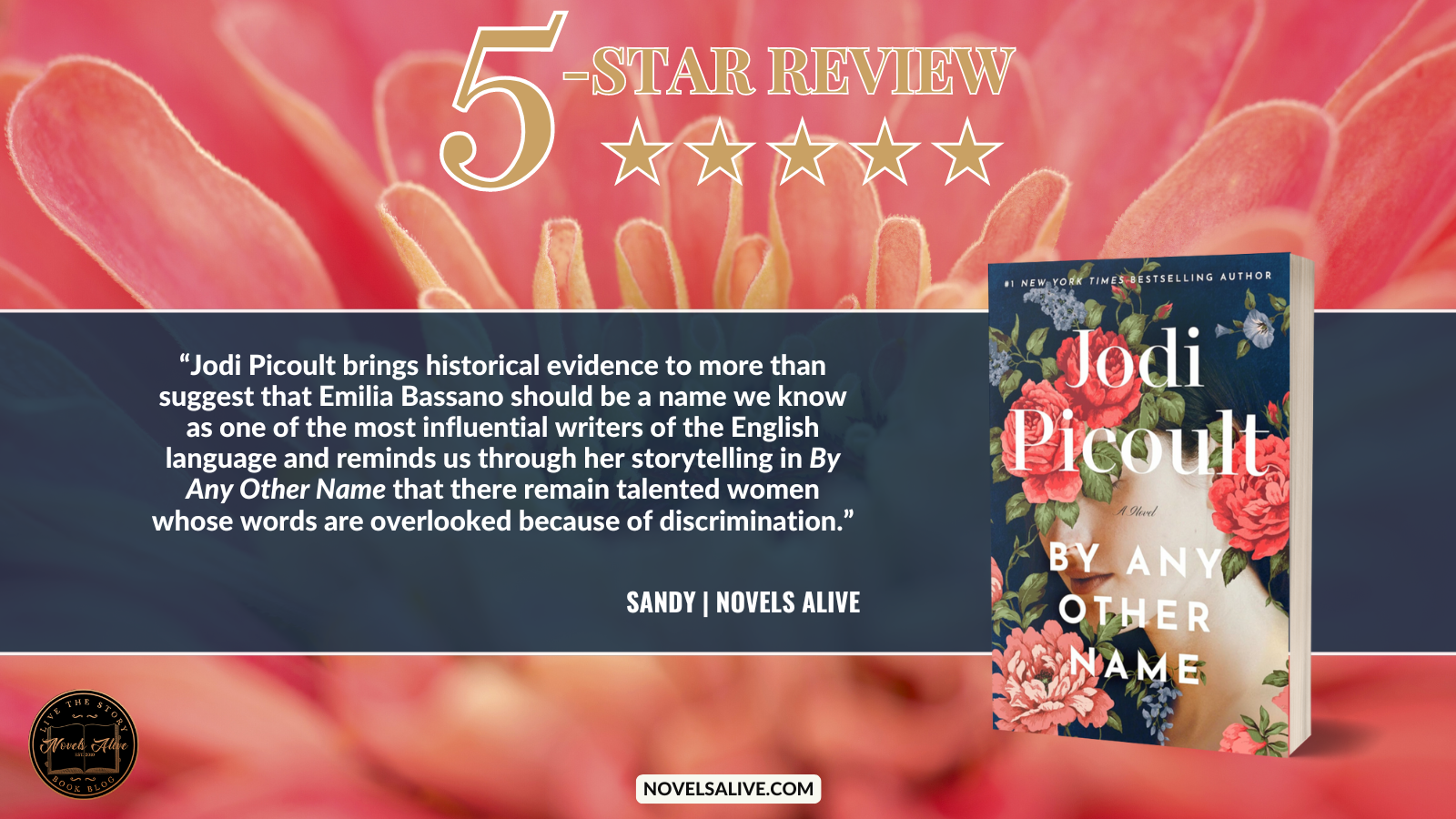

Publication Date: August 20, 2024
From the co-author of Mad Honey comes an “inspiring” (Elle) novel about two women, centuries apart—one of whom is the real author of Shakespeare’s plays—who are both forced to hide behind another name.
Young playwright Melina Green has just written a new work inspired by the life of her Elizabethan ancestor Emilia Bassano. But seeing it performed is unlikely, in a theater world where the playing field isn’t level for women. As Melina wonders if she dares risk failure again, her best friend takes the decision out of her hands and submits the play to a festival under a male pseudonym.
In 1581, young Emilia Bassano is a ward of English aristocrats. Her lessons on languages, history, and writing have endowed her with a sharp wit and a gift for storytelling, but like most women of her day, she is allowed no voice of her own. Forced to become a mistress to the Lord Chamberlain, who oversees all theatre productions in England, Emilia sees firsthand how the words of playwrights can move an audience. She begins to form a plan to secretly bring a play of her own to the stage—by paying an actor named William Shakespeare to front her work.
Told in intertwining timelines, By Any Other Name, a sweeping tale of ambition, courage, and desire centers two women who are determined to create something beautiful despite the prejudices they face. Should a writer do whatever it takes to see her story live on . . . no matter the cost? This remarkable novel, rooted in primary historical sources, ensures the name Emilia Bassano will no longer be forgotten.

Jodi Picoult’s latest novel, By Any Other Name, is based on an oft-pondered question, “Could Shakespeare have written all that has been credited to him?” If you are an avid reader of Picoult’s work, you are familiar with her extensive research to give her stories an authenticity that is quite unmatched in Contemporary Fiction. Here, she uses this research to paint a picture of a rumored contributor behind Shakespeare’s plays and compares it to a fictional playwright in modern times.
The research, noted not only in a bibliography but in her author’s notes at the back of the book, discloses several names that have risen as suspect to be behind William Shakespeare. Picoult points out that one rises above the others, Emilia Bassano. Why would this elicit a topic for contemporary fiction, albeit historical? In Elizabethan times, women were forbidden to write plays—it was a man’s world. Even now, female writers are still struggling to get their voices heard.
Enter the characters: Emilia Bassano is a woman whose coincidences of privilege and years of deplorable conditions shaped her life and choices. Melina Green is a young woman whose early writing was influenced by men in powerful positions.
By Any Other Name is told in two time periods but are intersected because the chapters told by Emilia about her life and how she came to write for Shakespeare are connected to the chapters of Melina Green, who is related to Emilia Bassano and boldly writes a play suggesting Bassano was Shakespeare’s ghostwriter. Both women cannot get their writing published.
In reading this, you must be willing to entertain the idea that there was no way Shakespeare could have been the sole writer of what we have come to hold so dear in literary circles. Although Picoult fleshed out details to string together Emilia’s life from the child of court musicians to a student of a countess to a courtesan to an abused wife, Emilia truly did live and write in Shakespeare’s time. It isn’t surprising to understand that she could not freely share her writing talents in the late 1500s. What Picoult has done with equal moxie is to extend that societal obstacle through how Melina finds a way to get her play accepted by allowing a man to front her work. But are we as willing to understand that the fictional account of a woman unable to have her work accepted because of her gender isn’t really fiction?
Jodi Picoult brings historical evidence to more than suggest that Emilia Bassano should be a name we know as one of the most influential writers of the English language and reminds us through her storytelling in By Any Other Name that there remain talented women whose words are overlooked because of discrimination.

 Jodi Picoult is the #1 New York Times bestselling author of twenty-nine novels, including Mad Honey (co-authored with Jennifer Finney Boylan), Wish You Were Here, The Book of Two Ways, A Spark of Light, Small Great Things, Leaving Time, and My Sister’s Keeper, and, with daughter Samantha van Leer, two young adult novels, Between the Lines and Off the Page. She lives in New Hampshire with her husband.
Jodi Picoult is the #1 New York Times bestselling author of twenty-nine novels, including Mad Honey (co-authored with Jennifer Finney Boylan), Wish You Were Here, The Book of Two Ways, A Spark of Light, Small Great Things, Leaving Time, and My Sister’s Keeper, and, with daughter Samantha van Leer, two young adult novels, Between the Lines and Off the Page. She lives in New Hampshire with her husband.



















